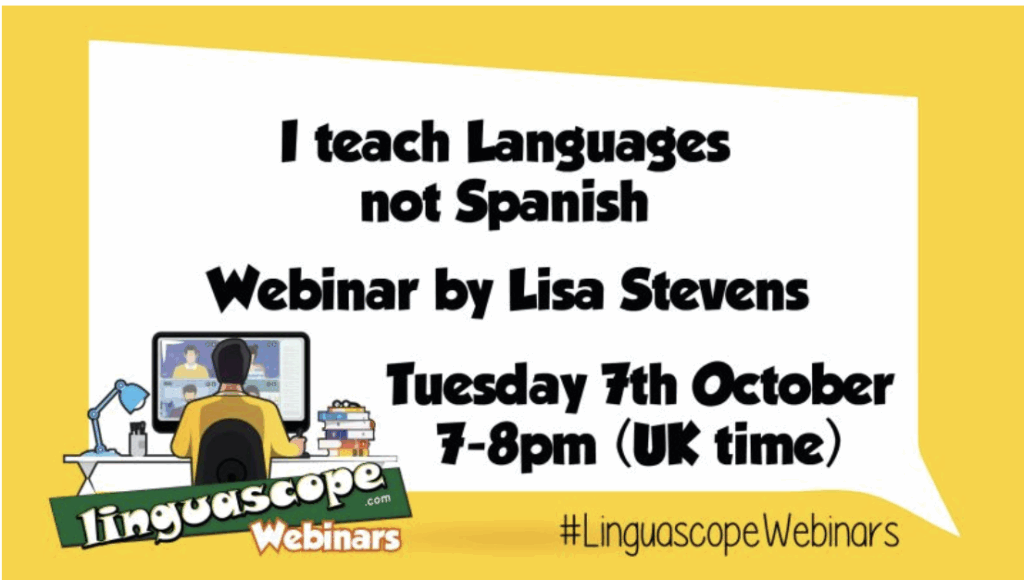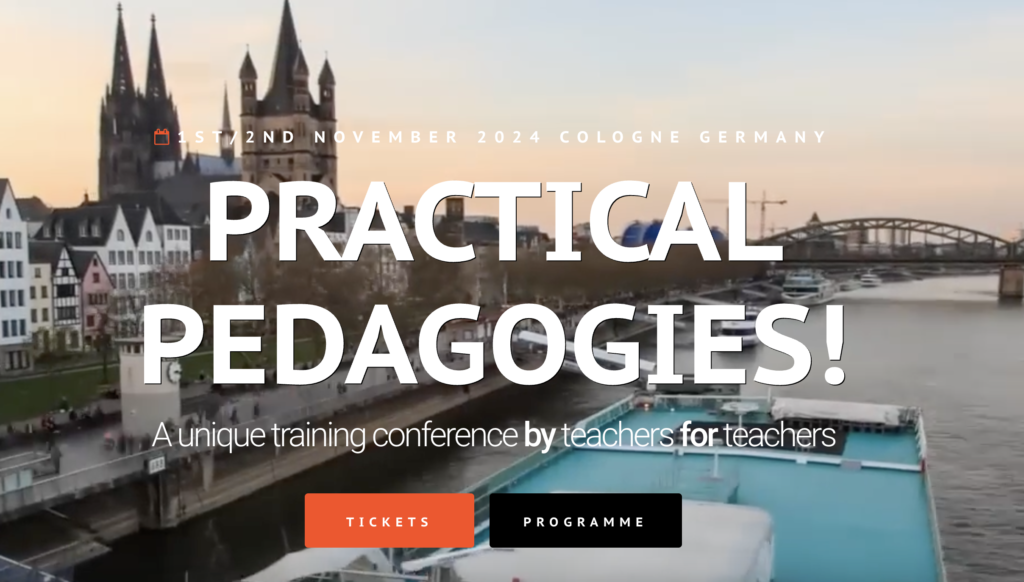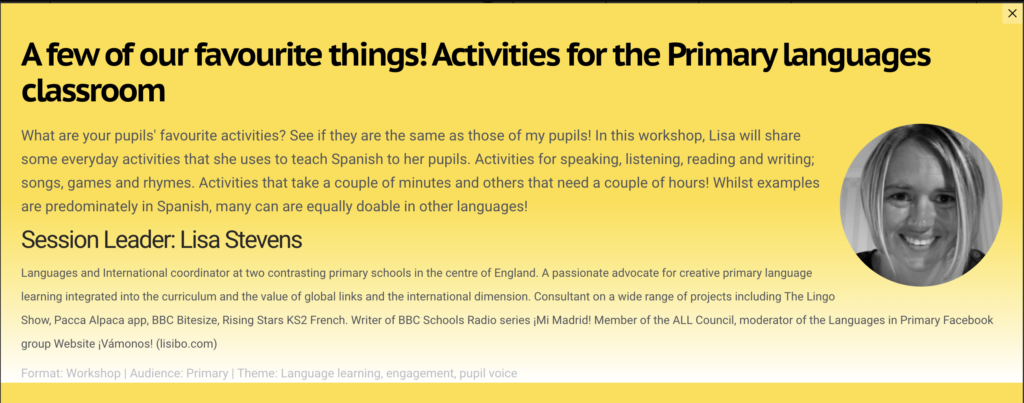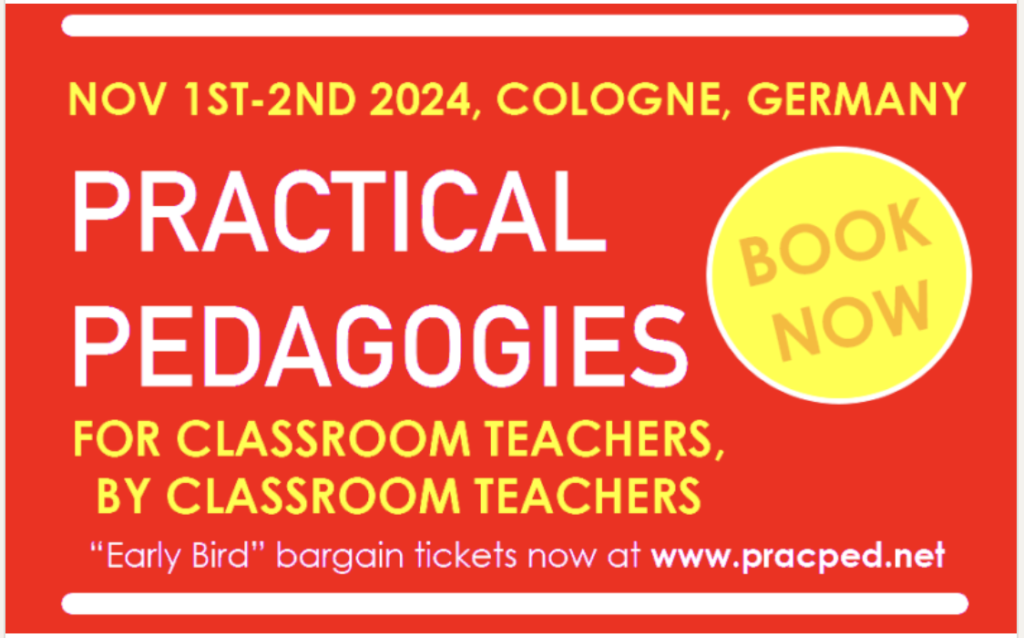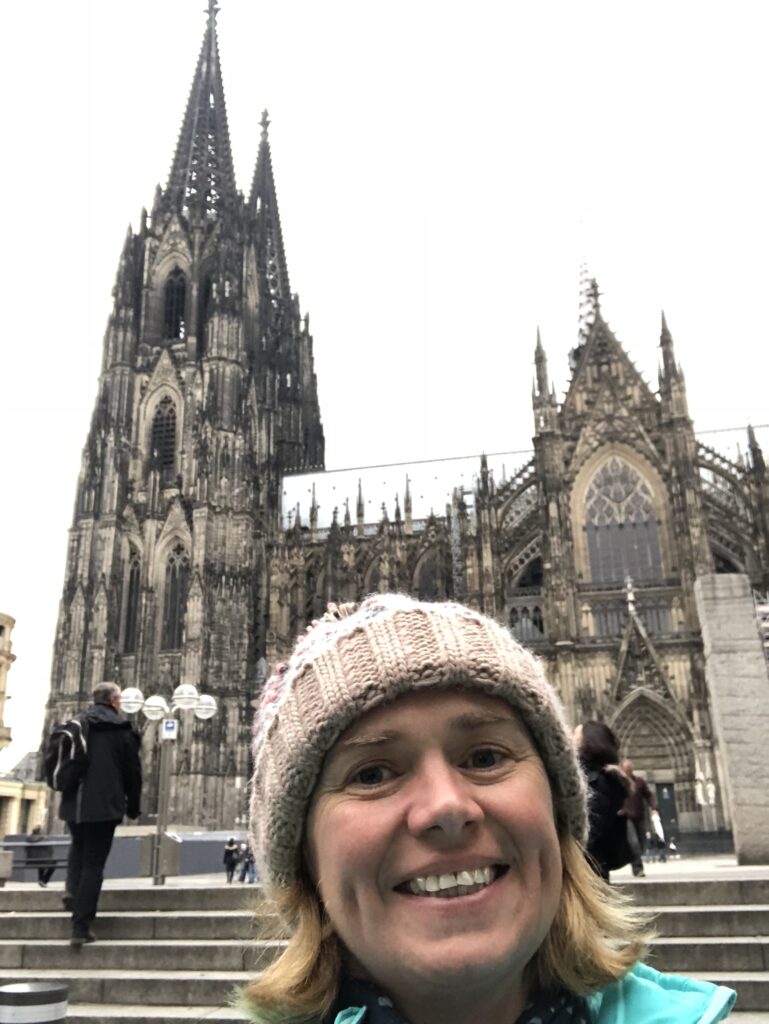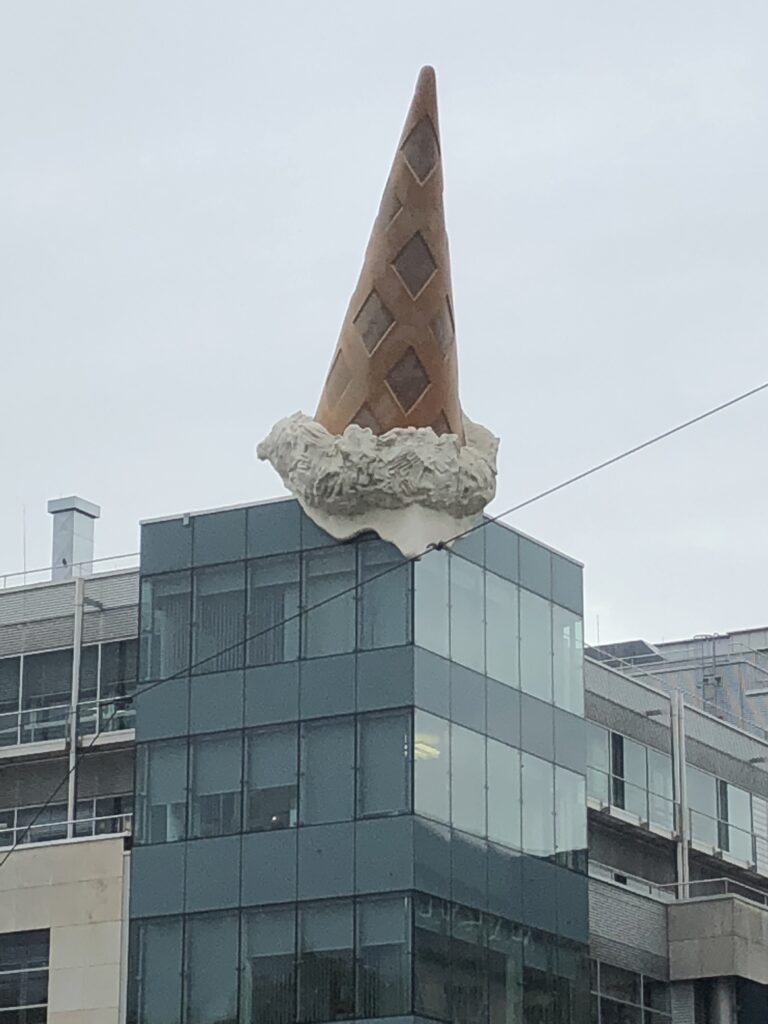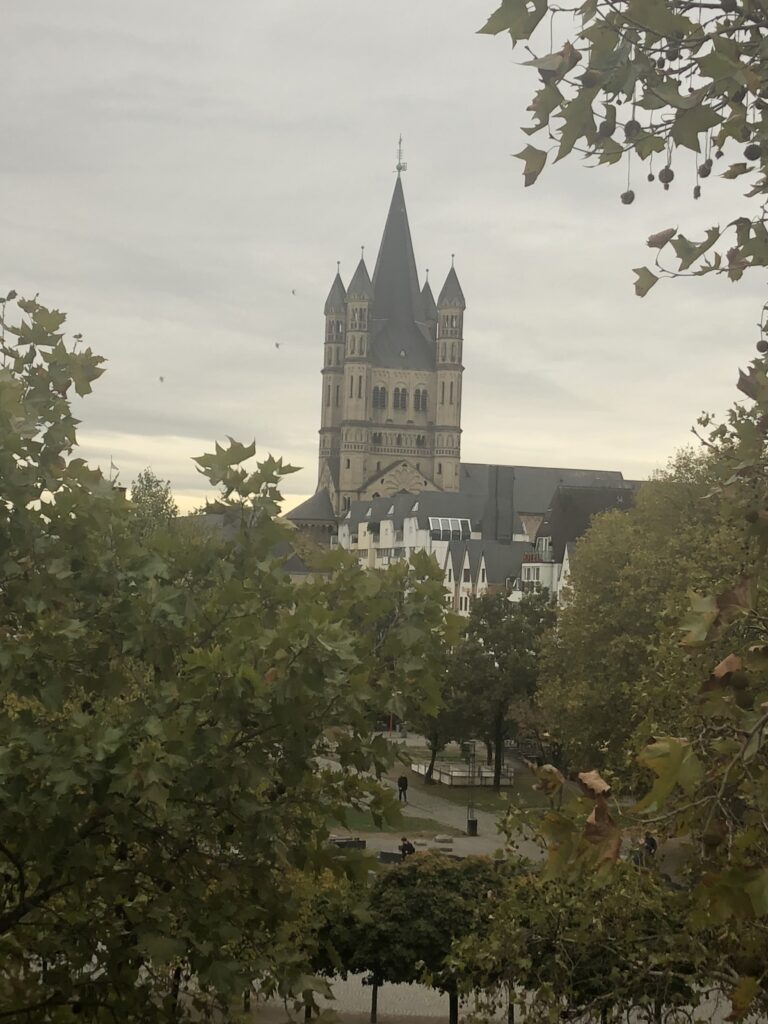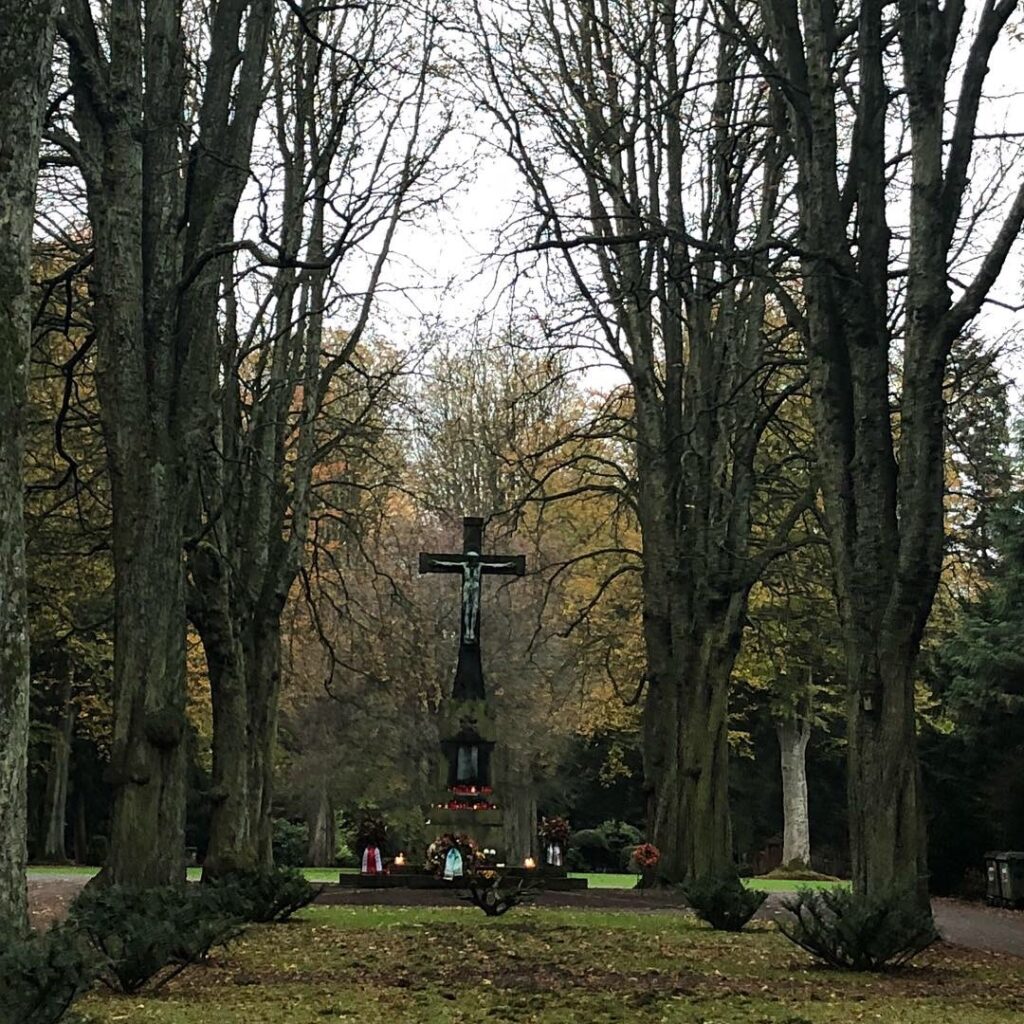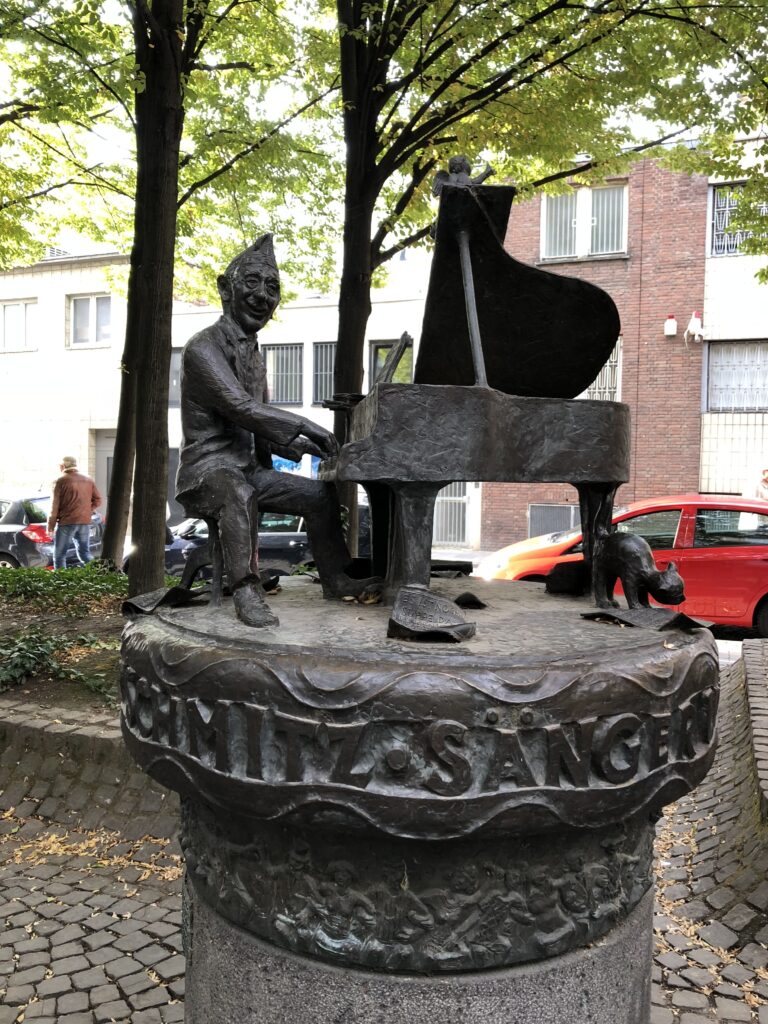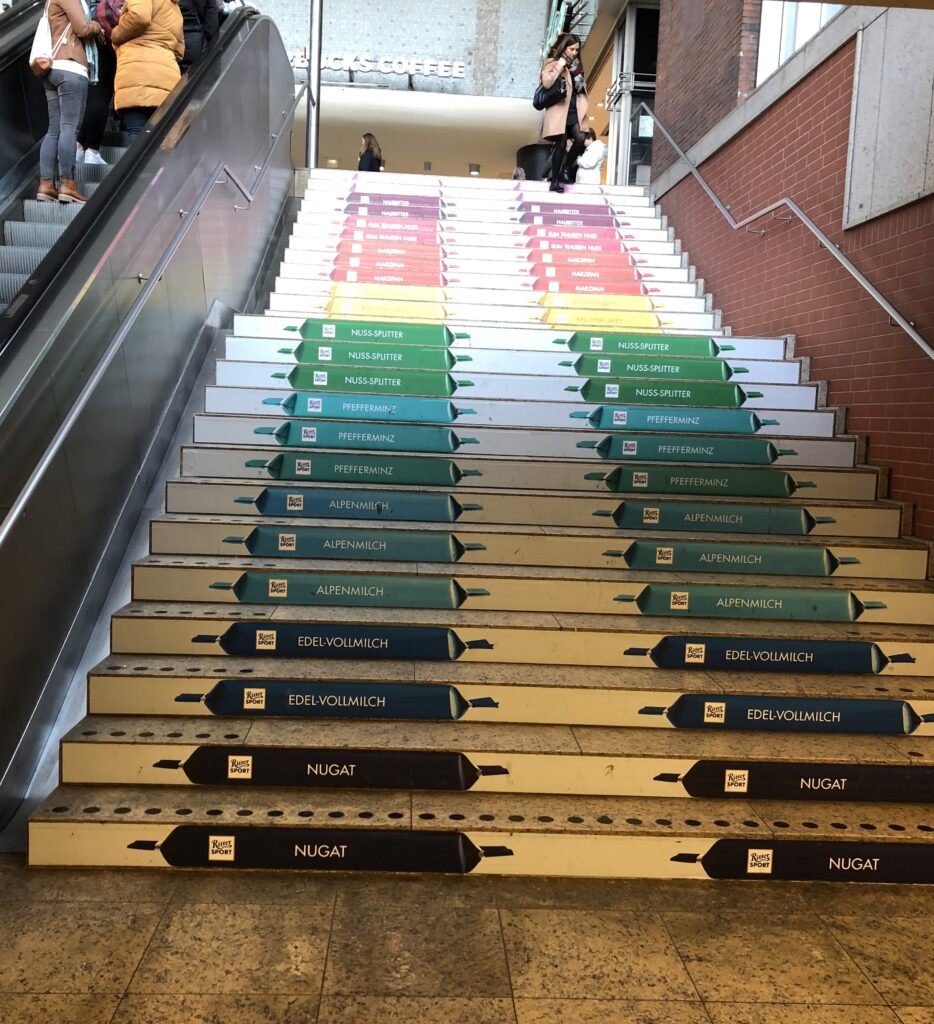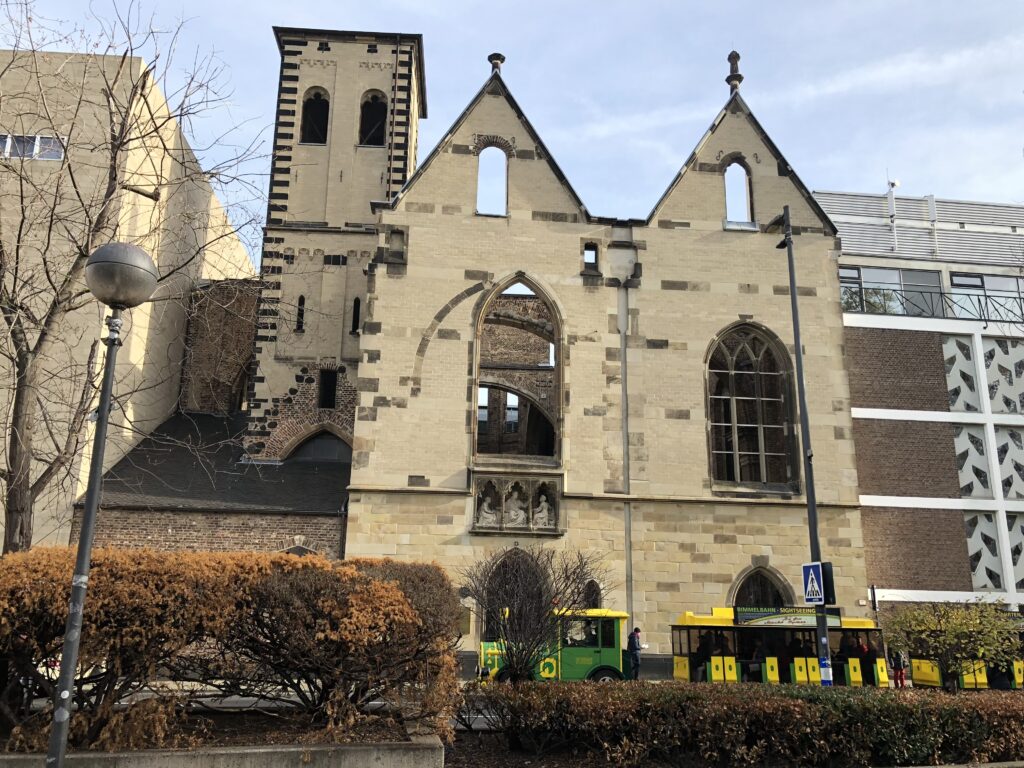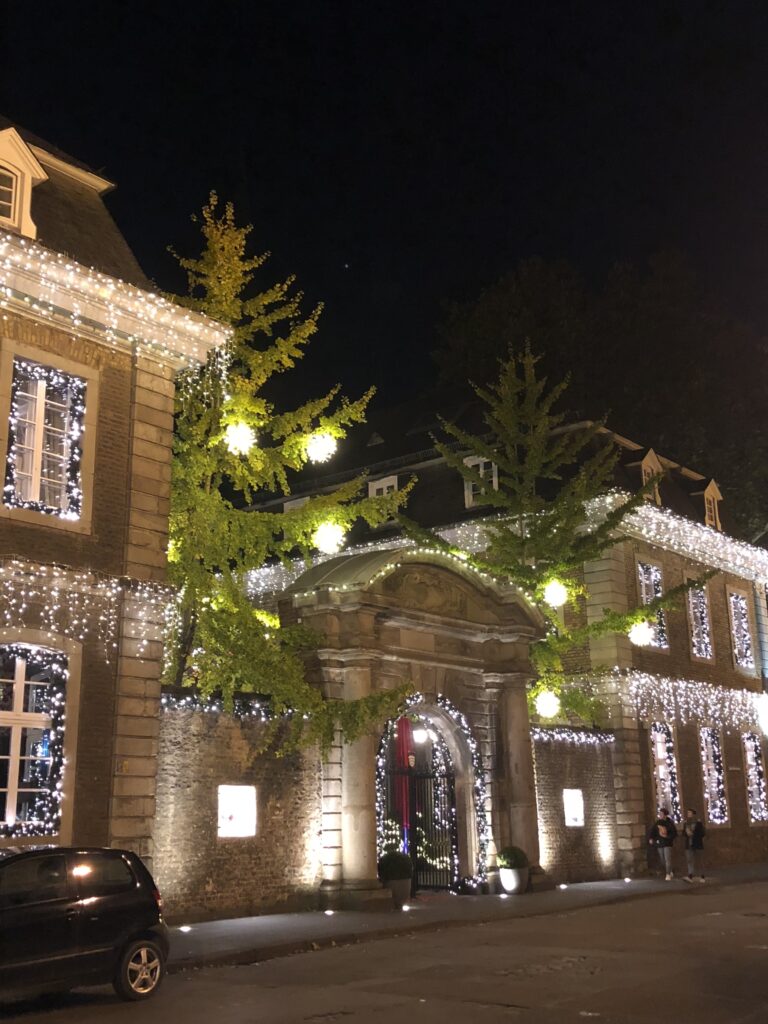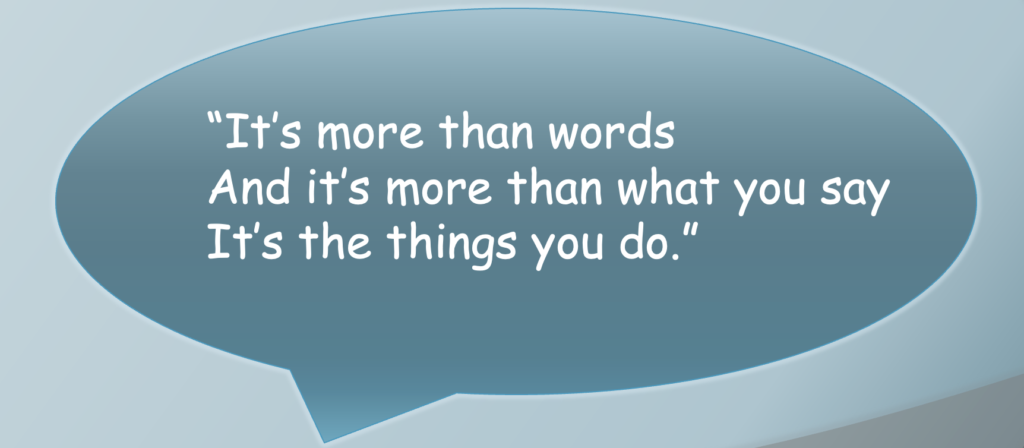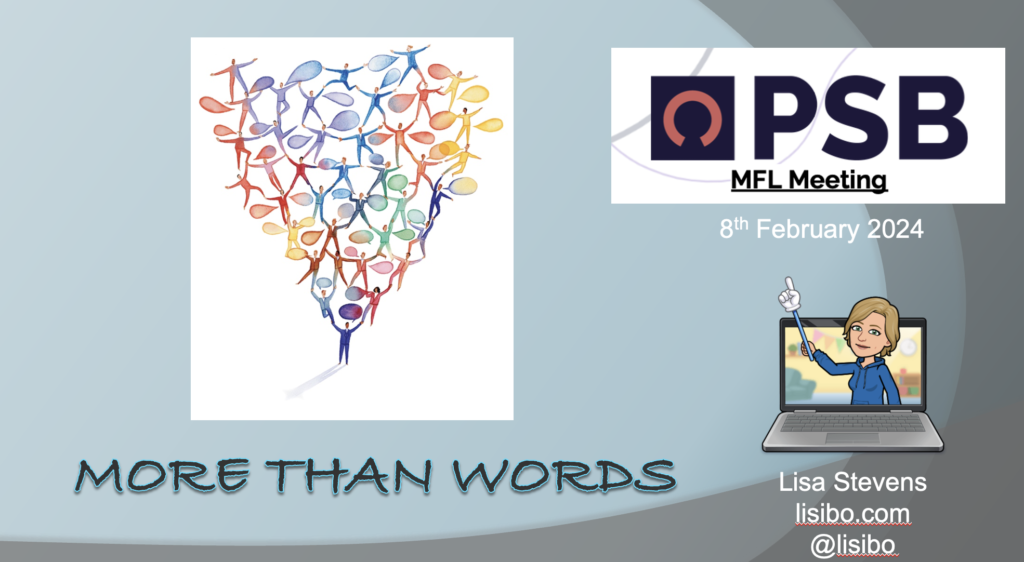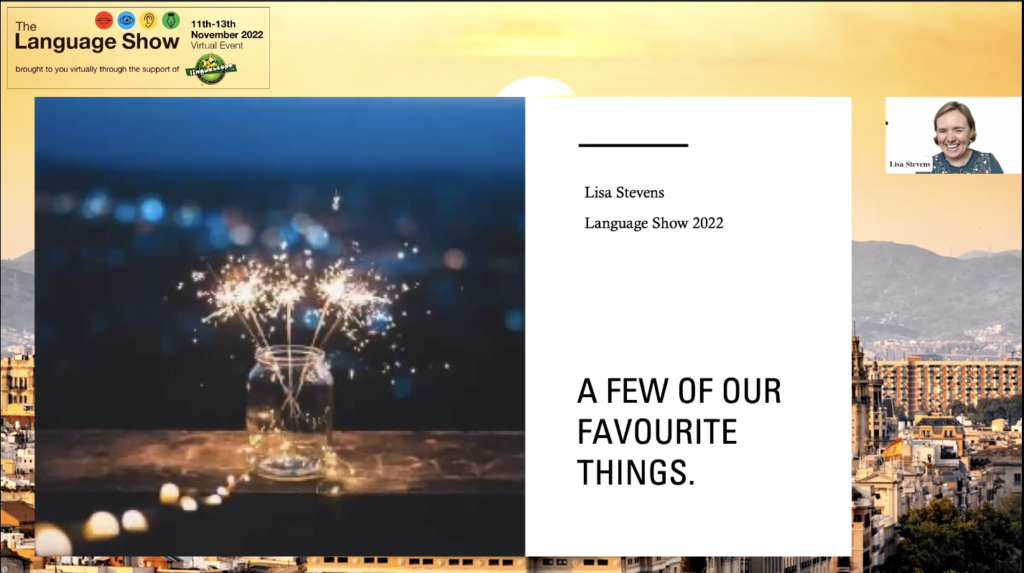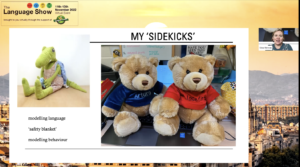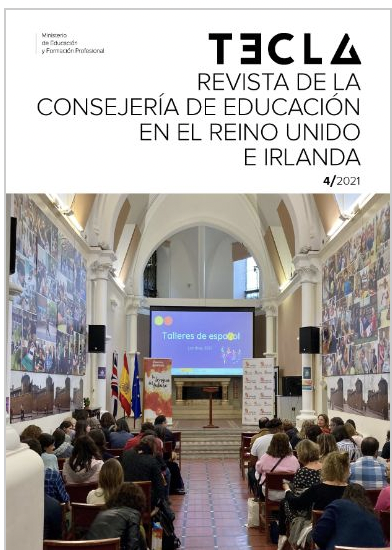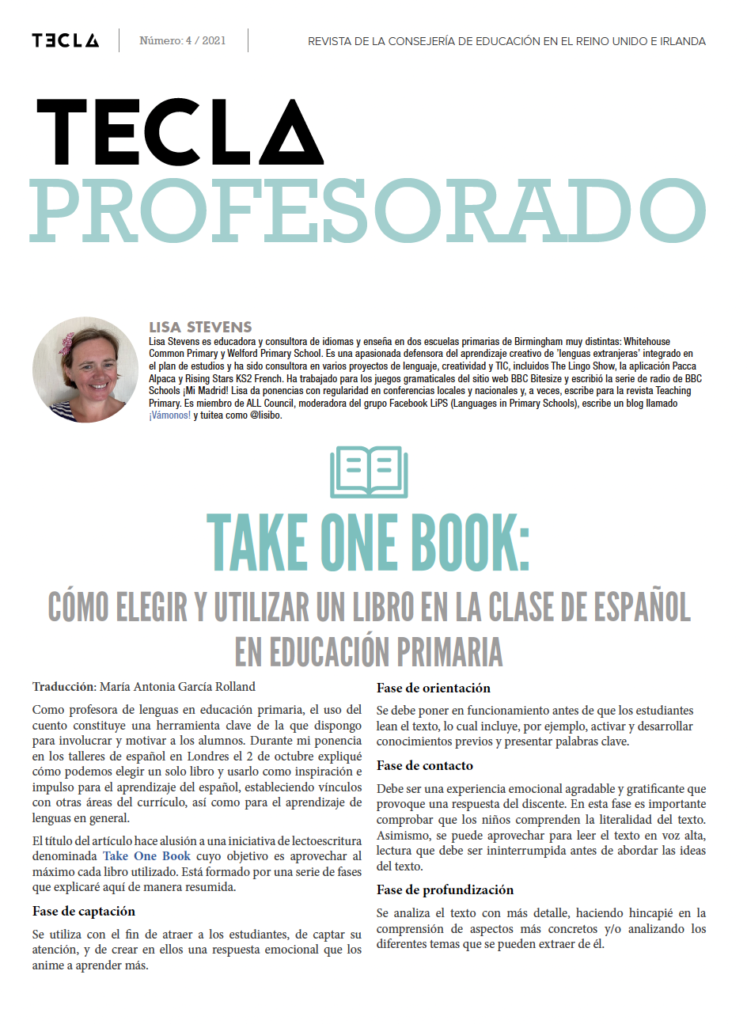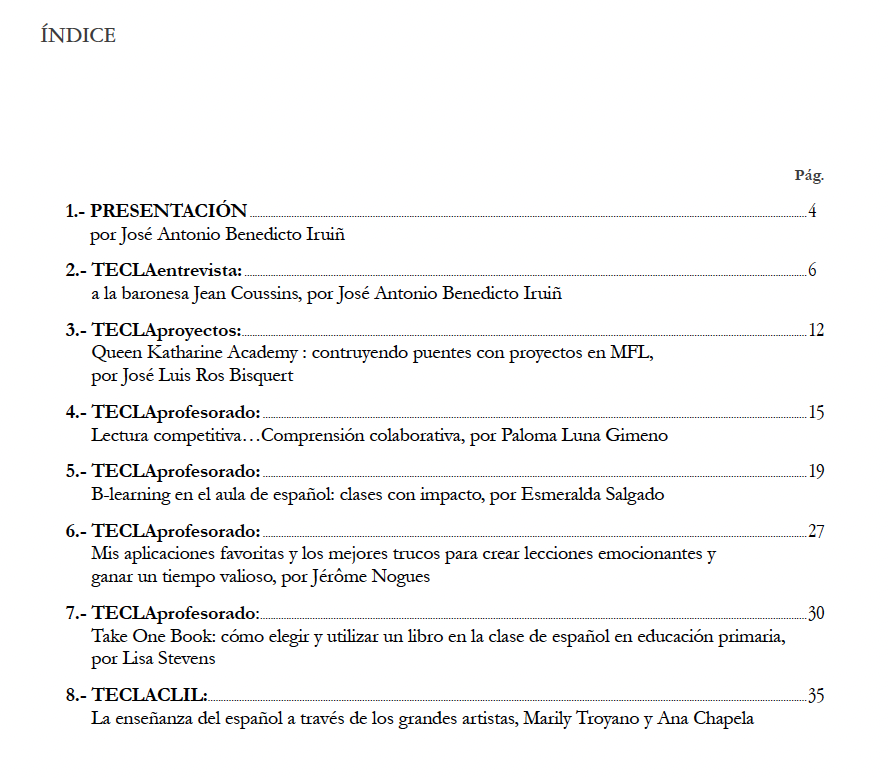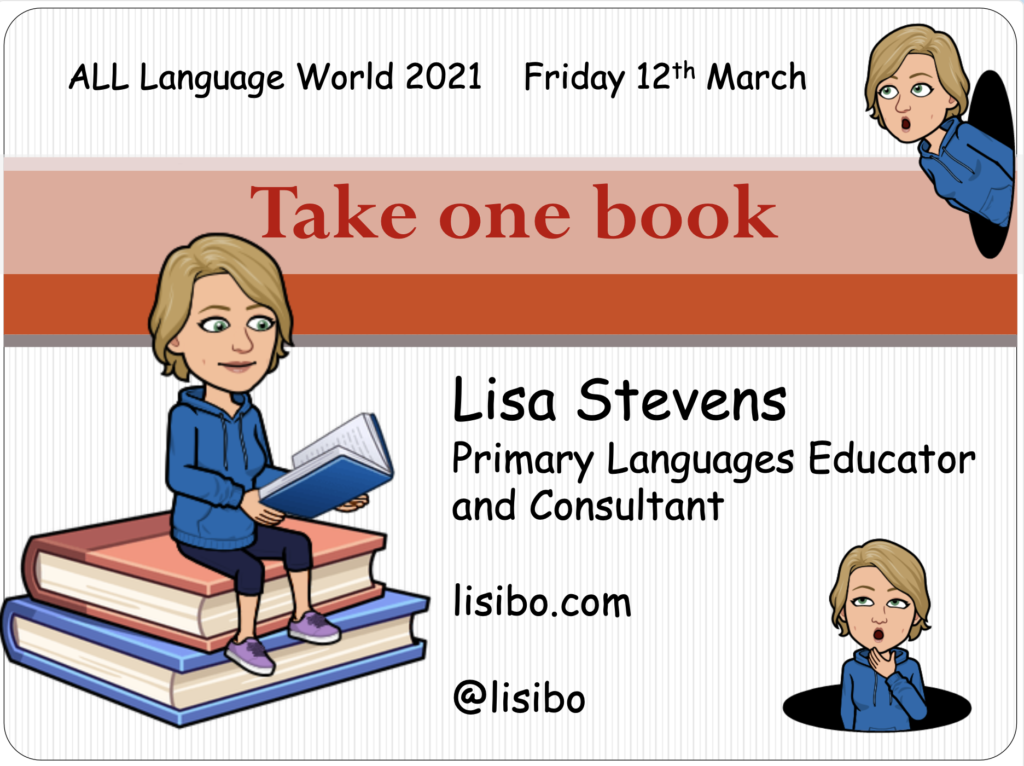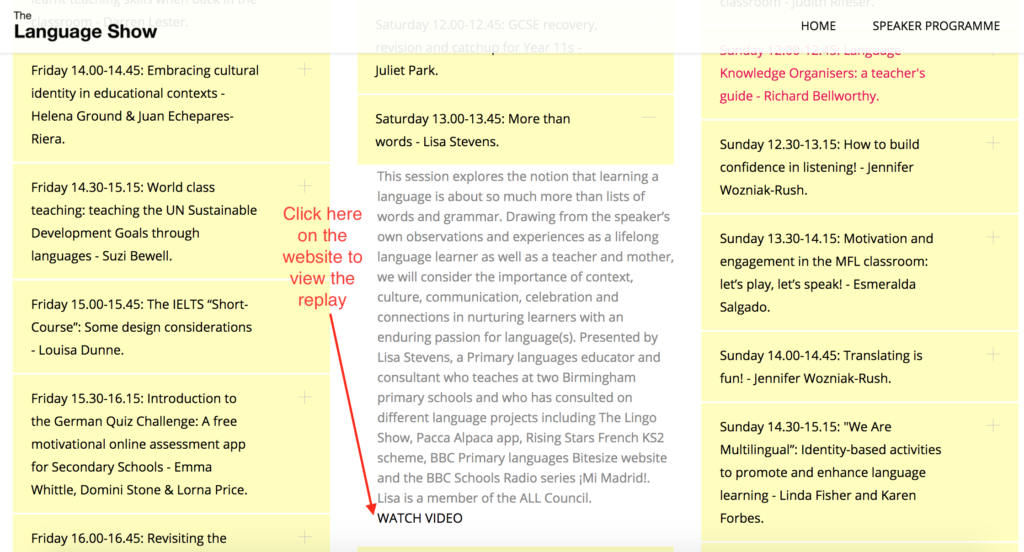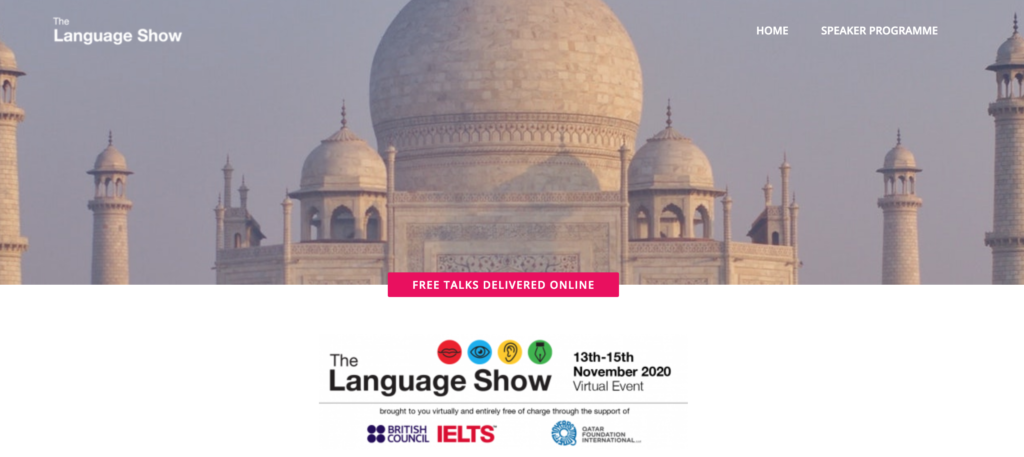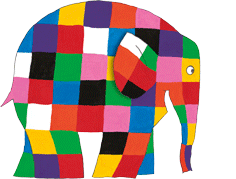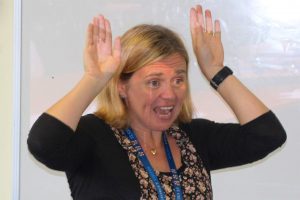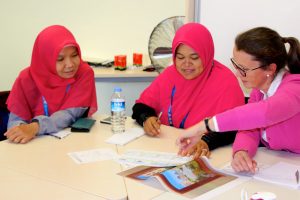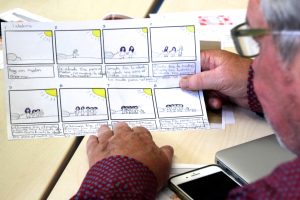Really pleased to be delivering a Linguascope webinar next Tuesday 7th October. I’ve been asked several times but it’s never been a good time. This time, I was asked during a post conference reception last week and the date was near enough for me to be able to say yes immediately.
I’ll be talking about the importance to me of teaching languages rather than just Spanish:
Tuesday 7th October – Lisa Stevens will be talking about how her learners call her Señora Stevens, she doesn’t see herself as a Spanish teacher but as a teacher and explorer of languages. In this webinar, Lisa will explore this thinking, explaining why she feels it’s important to consider and value all languages, and giving examples of how it is possible when the Languages Programme of Study stipulates that over KS2 (aged 7-11) pupils must have made ‘substantial progress in one language.’
You can register for the webinar for free using this link
Looking forward to seeing you – at the start and end anyway as I probably won’t be able to see anything other than my slides when I’m presenting!
In the two following weeks you can also attend webinars by Hannah White and Kerry Bevan.
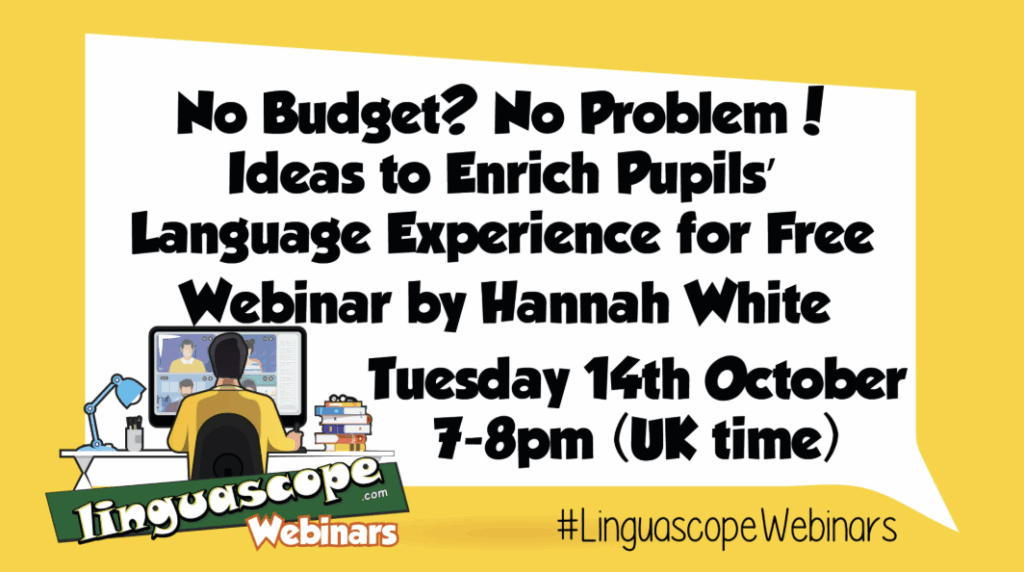
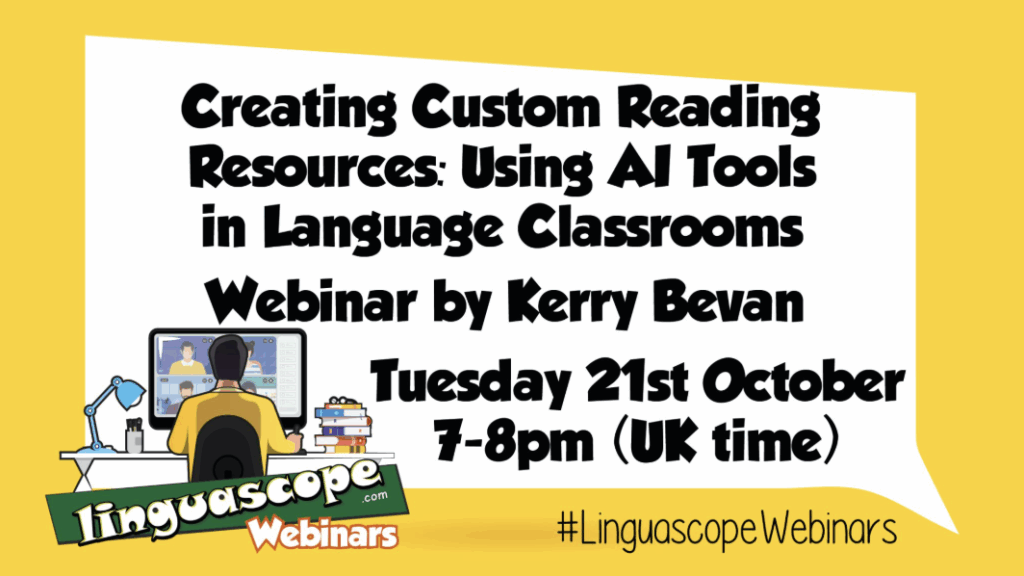
Tuesday 14th October – Hannah White will share 6 fully funded ideas for bringing additional language and culture into your classroom this year. Register here
Tuesday 21st October Kerry Bevan will be joining us just before the half term break coming to share her experiences tinkering and playing with AI but to create custom reading resources which have a huge impact on learners and language learning! Register here
All Linguascope webinars are free to register and free to attend live, and are not limited to attendees from the UK – all are welcome!
